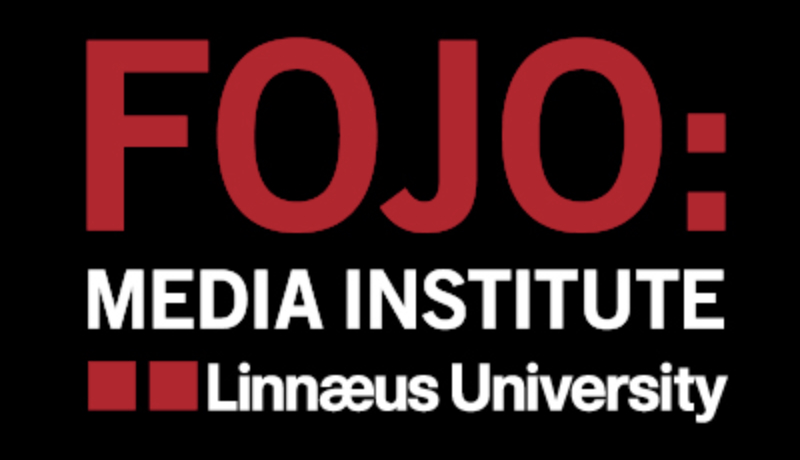
Media Helping Media is hosted by the Fojo Media Institute and is one of its official training resources.
From our BASIC JOURNALISM section
The active and passive voices in news
Make your news writing more interesting by using the “active voice”. Bob Eggington explains this simple and effective technique.
Language and style – words
In this module on language and style from The News Manual, we look at the words you use to tell your story. We see how important spelling is and how to avoid causing confusion with the words you choose.
From our EDITORIAL ETHICS section
Fairness in journalism
Fairness in journalism means exploring all sides of an issue and reporting the findings accurately. Members of the public should never be used to exaggerate the importance of a story.
Why editorial ethics are important
The Media Helping Media ethics section is designed to help journalists understand and navigate some of the challenges they are likely to face as they go about their work.
From our ADVANCED JOURNALISM section
How to set online news priorities
Tips on how to run a news website which is part of a converged news operation involving broadcast and/or print in order to fully exploit existing resources and add in-depth interactive elements.
Making documentaries for radio
Documentaries are in-depth stories told in a more interesting way. A great documentary engages listeners and puts them at the heart of the storytelling.
 Unfortunately, Facebook has decided to disable our Media Helping Media Facebook group. Our Facebook page is still live.
Unfortunately, Facebook has decided to disable our Media Helping Media Facebook group. Our Facebook page is still live.
 Do you have any wisdom to share with those without access to formal training? If so please get in touch.
Do you have any wisdom to share with those without access to formal training? If so please get in touch.
 Media Helping Media (MHM) provides free training resources for those starting off in journalism. Read more …
Media Helping Media (MHM) provides free training resources for those starting off in journalism. Read more …
 The content on Media Helping Media (MHM) is released via Creative Commons BY NC SA 4.0. Please read the MHM copyright terms.
The content on Media Helping Media (MHM) is released via Creative Commons BY NC SA 4.0. Please read the MHM copyright terms.
The mindset for investigative journalism
The investigative mindset is responsible for solving more information mysteries than probably any other factor. If you haven’t started writing down your best strategies now might be the time to start.
Tips for investigative journalism
The following are some of the points from a training session given by Marcus Tanner to the Balkan Fellowship for Journalistic Excellence setting out how to produce a piece of investigative journalism.
10 tips for investigating corruption
An investigative journalist has to plot the geometry of bribery, determine the currency of influence, document the paper trail, and deal with threats and retaliation when investigating corruption.
Editorial considerations when a ‘big story’ breaks
When a big story breaks the following editorial considerations should be assessed.
Story development, ensuring all angles are covered
Asking the questions that need to be asked
In a previous module we looked at the topic of proactive journalism, where journalists are encouraged to...
Convergence, workflows, roles and responsibilities
A converged newsroom operates like a content factory, responsible for all intake, production and output. It gathers and processes raw material, creates different products, and delivered them to the target audience.
The value of thorough research for media organisations
Knowing your audience, understanding the issues they face, and being aware of what they think about society - and your media organisation in particular - are important factors for fine-tuning what you offer in order to better inform the public debate.
Newsroom evolution from digital denial to digital first
Continually monitoring how content is being consumed by your audience, and responding quickly to technological and market opportunities, is essential to developing a sustainable business model.
The uneasy but essential evolution of news
The audience, empowered with tools to choose, create, enrich and share, is the new superuser offering alternative sources and channels of information to those of mainstream providers.
Public interest – scenario
This scenario looks at some of the issues that need to be considered when deciding whether a story is in the public interest.
Privacy protection – scenario
You are working on the online news desk of a large media organisation. News breaks of fighting overseas. Raw footage arrives showing identifiable dead bodies. What do you do?
Photo journalism – scenario
Scenario: You arrive at a border crossing and see a child sitting by the roadside crying. You think it's been abandoned and take a picture. You alert the newsdesk. But it transpires it's just lost its mother and stops crying when the mother arrives. What should you do?
How to design a successful media training plan
A well-designed media training plan could make the difference between the success and the failure of a media business. Get it wrong and you could be adding to the problems you were asked to address.
Five essential steps for media training
For international media training to be successful, tried, tested and proven case studies from a similar region are needed. Theory has limited value, as do examples of what works in the West.
Basic rules for delivering training
One of the first steps in delivering training is to articulate the ground rules. Participants need to know what to expect, what is expected of them and how you intend to schedule course elements.




